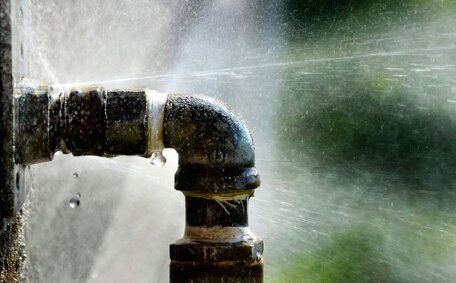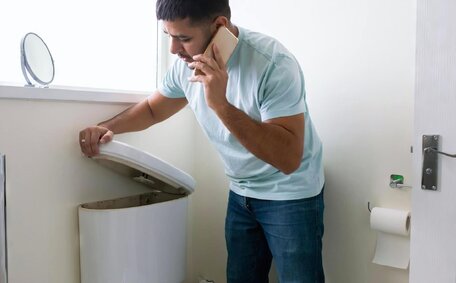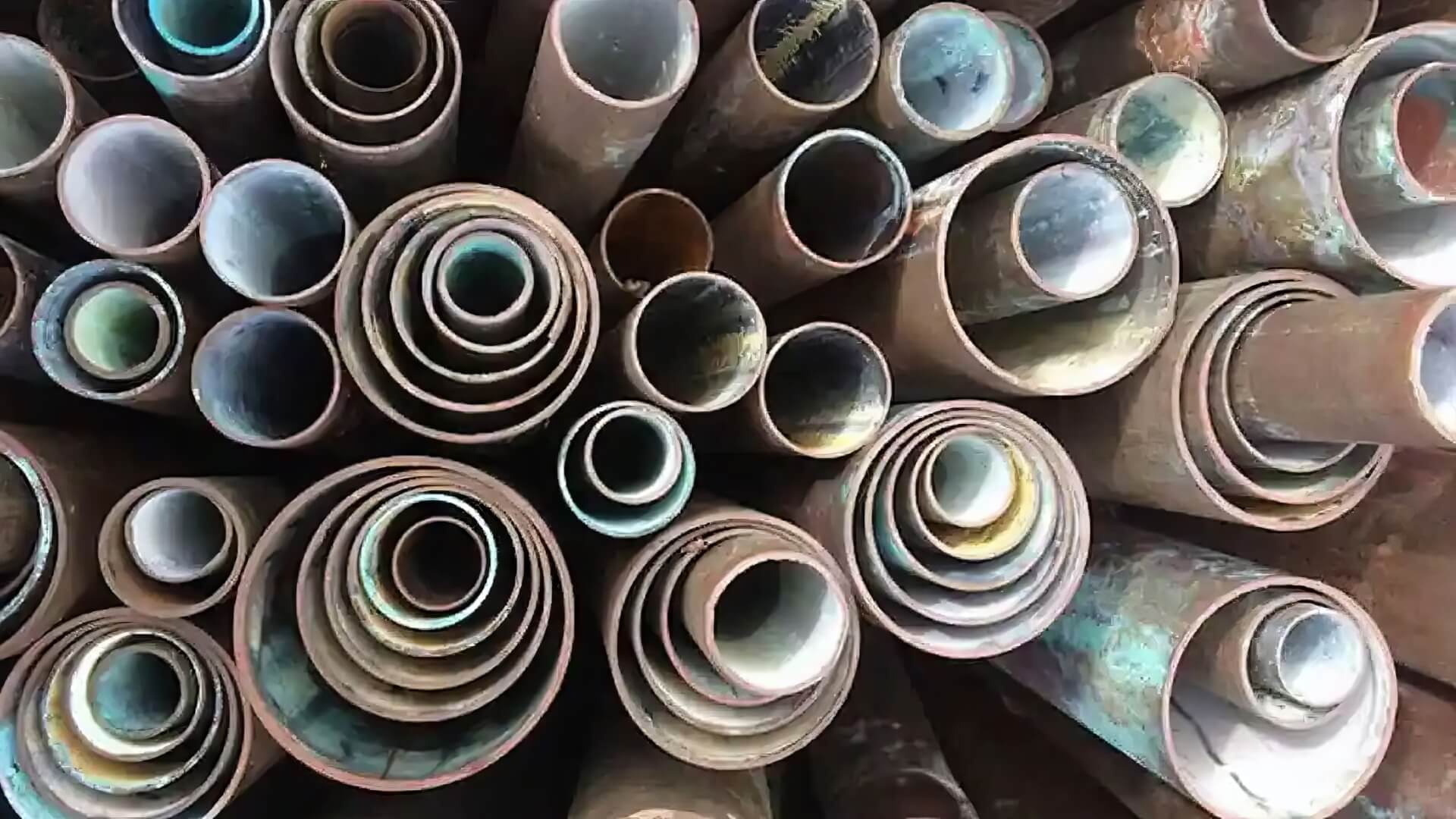
10 Signs Your Hot Water Heater Will Fail
If your water heater is old, leaking, rusty, noisy, not heating water properly or has low pressure, it could fail soon. Get your hot water system inspected today.
Read MoreUntreated gas leaks in your home can lead to severe safety risks, such as health hazards from gas exposure, heightened fire risks, and negative environmental repercussions. It is essential to recognise the early warning signs of a gas leak. Suspecting a gas leak warrants immediate professional attention.
Mortdale Plumbing is skilled in gas leak detection and repair for both homes and businesses in Sydney. Our licensed plumbers are equipped to manage anything from minor gas leaks to emergency situations, ensuring your safety.
With expertise in general plumbing and natural gas LPG fittings, Mortdale Plumbing guarantees dependable service.
If you observe gas leak indicators, especially with appliances or lines, contact our proficient plumbers without delay.
The most recognizable sign of a household gas leak is the distinctive smell of rotten eggs.
Mercaptan is added to the inherently odourless natural gas as a safety measure, making it detectable by smell. A faint rotten egg smell in or near your home may signify a gas leak.
Hissing or whistling noises emerging from any gas appliance or pipes can also herald the telltale signs of a gas leak which can be a critical safety issue. This may indicate that high-pressure gas is escaping through a crack or loose fitting.
Tangible signs of a gas leak, such as bubbles in standing water or dead vegetation near gas pipes, might hint at gas issues in your home. A white cloudy mist or vapours appearing near gas equipment are another visual cue not to ignore.
Detecting these signs of a gas leak, turn off the gas if safe, evacuate, and call for emergency assistance promptly.
This safety measure allows for the easy detection of gas leaks, highlighting the need for immediate action if one is suspected.
If you smell gas, act quickly by calling professionals, as even minor leaks can lead to dangerous gas build-up over time. Proactively ensure your safety by having a professional check all your gas appliances and lines.
Contact Mortdale Plumbing for guidance on checking gas connections and safely turning off your supply to prevent potential disasters.
A hissing or whistling sound often signals a significant gas leak in the home.
Detecting shrill hissing or whistling noises should prompt a thorough inspection of the area. Deactivating gas appliances sequentially and checking for cessation of gas flow can help identify the source of a leak. Note any changes in sounds as you inspect areas susceptible to gas leaks.
Take any faint hissing sounds seriously and contact gas professionals for an inspection and repairs if needed.
Noticeable signs around gas appliances or amidst gas lines appliances can likewise suggest an imminent leak. Some visual cues to watch out for include:
Be aware of these potential red flags that may indicate gas leaks near gas equipment, both outside and inside your residence. If there is a manifestation of these sight-based leak indicators, take precautions such as deactivating individual appliances and enlisting a professional’s expertise immediately to inspect your gas system.
Suspected gas leaks can lead to alarming physical symptoms that require immediate medical attention. Headaches, dizziness, fatigue, nausea, chest tightness, heart palpitations, and breathing issues are common signs. Losing consciousness or seizures also occur in extreme cases.
Do not overlook these symptoms, as they can indicate a serious risk to your health from suspected gas exposure. Seek fresh air right away by exiting the building and getting to a safe outdoor area. Call emergency services so they can check for carbon monoxide poisoning, assess levels and provide oxygen support if necessary before transporting you for urgent medical treatment.
Gas exposure physical symptoms should never be downplayed. Allowing them to persist can have devastating health consequences. By swiftly moving to fresh air and seeking emergency assistance upon the onset of alarming symptoms, you ensure the best course of action to keep you gas safe and free from severe harm.
If you suspect a gas leak in your home, follow these important steps right away:
Gas leaks require an urgent, cautious response, often amounting to a gas emergency. By swiftly evacuating and notifying emergency teams when you suspect a gas leak, your actions exemplify responsible use gas protocols, mitigating any potential risks of fire, explosion, health impacts, and property damage.
If you detect signs of a gas leak in your home, it is critical to leave the area immediately. Gather all occupants and pets and evacuate outdoors right away, moving a safe distance from the home.
Avoid using any electrical switches, phones, appliances, garage door openers, or other devices that could produce a spark while evacuating. When combustible gas encounters sparks, it can ignite and result in an explosion or fire.
Once safely outdoors, call emergency services on 000 so firefighters can determine where gas lines should be isolated and electricity lines verified as safe before re-entering the premises. Never assume a leak has dissipated on its own – allow professionals to thoroughly assess the situation first.
Prompt evacuation at the first indication of a gas leak could prevent potential disasters. Don’t delay - exit immediately and call 000 to address the leak.
If you suspect a gas leak, one important step is to turn off the main gas supply valve when using your wrench, if it is safe to do so. To close the valve, rotate the handle a quarter turn with a wrench until it is perpendicular to the pipe. Take care and ensure there isn’t a gas leak before attempting to shut off the valve, and do not re-enter the home if you still detect gas odours.
This valve is typically located outside next to the gas metre. Make sure you know where your gas valve is located before an emergency occurs. Turning off this valve halts the flow of gas into the home, thereby preventing further escape until professional help arrives. In any situation where you suspect a gas leak, your safety is of the utmost importance.
Post-evacuation, to purge the gas air mixture built up indoors, opening doors and windows can effectively facilitate the gas dilution into the larger environment.
Do not re-enter the home or use any electrical devices while ventilating the space by opening windows.
If you detect any signs of a potential gas leak or are unsure about the safety of your gas lines, evacuate the area and call a professional right away. Mortdale Plumbing offers 24/7 emergency response from licenced technicians to address suspected gas leaks and perform any necessary repairs.
Our team is equipped with advanced gas detection technology for your property, using state-of-the-art equipment, allowing us to quickly identify gas leaks, and then immediately intervene to halt further escape. We can also provide official leak classification and compliant reporting along your gas pipes to document gas leakage accurately. Rely on our gas safety expertise to resolve the situation quickly and prevent risks to both your home and your family.
For emergency gas leaks service response or general enquiries about leak detection, call Mortdale Plumbing on 1300 349 338 or email us at jobs@mortdaleplumbingservices.com.au. As local gas specialists serving Sydney for years, we have the experience to address leaks safely, efficiently and to official standards.
Licenced technicians carry out gas leak detection using specialised tools and techniques.
A licensed gas fitter can adeptly perform soapy water tests on pipes and joints, which will unveil leaks your plumbing expert can examine and determine the cause of gas leaks. Only certified gas fitters have the expertise to conduct these tests safely and accurately interpret results.
Once a leak is identified, repairs involve replacing worn gaskets, tightening loose fittings, or patching pipe defects. More extensive leaks or outdated systems may require full gas line replacement. As gas leaks before they can escalate into serious risks, repairs should only be attempted by qualified professionals.
For assured interventions to address leaks before they amplify within your plumbing system, contact the licenced technicians at Mortdale Plumbing on 1300 349 338. Our fully certified gas fitters have quality detection gear and years of repair experience required to examine all your gas appliances and locate leaks before they worsen, stopping further gas escape quickly and safely.
Preventing gas leaks in your home begins with proper installation and routine maintenance of your natural gas and propane systems. Professional fitting and safe practices when using gas, involving propane natural gas appliances and pipelines by licensed experts can warrant proper connections and compliance with safety protocols, which could trim down your gas bills. Schedule annual inspections of your gas system to check for wear, corrosion, and loose connections that can lead to an unwanted amount of gas leaks over time.
We also recommend installing a gas leak detector among other natural gas and carbon monoxide detectors for additional monitoring and prompt leak detection. Check these devices monthly to verify proper function. If alarms go off, evacuate immediately and contact emergency services.
For professional installation of new gas lines or appliances, or to schedule preventative maintenance and safety inspections, contact the experts at Mortdale Plumbing on 1300 349 338, especially if you suspect a gas leak your system. Our licenced gas technicians have the tools and expertise vital in situations where you suspect a gas leak, helping to reduce risks and maintain your gas system’s safety.
Conducting regular inspections is vital, ensuring there aren’t any gas leaks and maintaining safe operation of gas appliances. Also inspect your gas stove burner ports and pilots for blockages by dirt or insects. Ensure devices like your air conditioning and your kitchen appliances, especially your stove, are cleaned thoroughly and any damaged parts are replaced to avert potential gas issues.
We recommend professional servicing of your appliances that use gas, like hot water systems, ovens, and cooktops annually by a licenced gas fitter. Don’t put off that safety check - contact Mortdale Plumbing today on 1300 349 338 to have your gas appliances inspected and maintained. They have the skills and equipment to detect deterioration in elements like your AC early before it grows into a major leak threat. Check flexible gas connectors, valves, pipes, and joints for signs of wear, cracks, corrosion, or loose fittings.
Installing gas leak and carbon monoxide detectors is an essential safety step for all homes with gas appliances or lines. These detectors provide an extra layer of monitoring and can detect leaks early before they become dangerous.
Place natural gas detectors as ways detect gas leaks near typical areas your home may encounter, such as the furnace, water heater, stove, fireplace, and laundry room gas lines. Carbon monoxide detectors should be installed near sleeping areas on every level of your house. Check all detectors monthly and replace as per the manufacturer’s recommendations.
What do you do if you ever hear an alarm from one of these devices? Have all occupants evacuate the home immediately and call emergency services. It’s crucial not to dismiss detector alarms as they likely point to hazardous gas leaking or looming exposure that demands immediate attention.
For advice on selecting the right home gas leak detectors and carbon monoxide detectors, call our specialists at Mortdale Plumbing on 1300 349 338. We offer detector installation services to help safeguard your household.
If your water heater is old, leaking, rusty, noisy, not heating water properly or has low pressure, it could fail soon. Get your hot water system inspected today.
Read MoreIf you have plumbing fixtures that are over 10 years old or showing signs of wear like leaks and cracks, it’s important to replace them to prevent more costly water damage in the future. Replacing worn fixtures improves water efficiency.
Read MorePipe relining is a trenchless method that renews pipes from the inside out. It involves draining, drying and scrubbing the pipe interiors before applying materials like silicone, PMMA or epoxy resins to create a resilient, soft, temporary liner inside the existing pipes.
Read MoreMortdale, 2223 NSW
We will call back as soon as possible.




